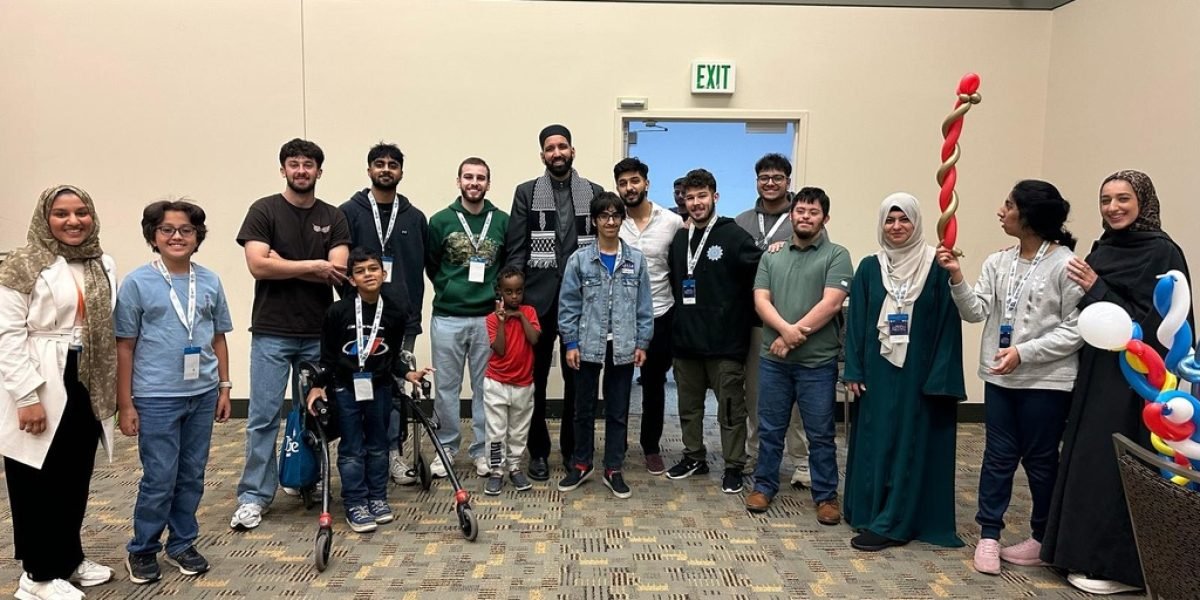Baltimore, MD, June 2025. At this year’s ICNA Convention, two of Texas’s well-respected organizations in disability advocacy—MUHSEN and The Malaikah Foundation—joined forces to deliver a thoughtfully designed, spiritually grounded respite care program for individuals with disabilities and their families. This initiative is seen as the beginning of what both organizations describe as a long-term effort to enhance inclusion across Muslim spaces in the United States.
The joint program served more than 20 families over the two-day convention, offering personalized care, sensory-friendly environments, and Islamic engagement tailored to each participant’s needs. Staffed by a combined team of trained MUHSEN and Malaikah volunteers, the space allowed caregivers to participate in ICNA programming while ensuring their loved ones received attentive, quality-focused care.
What made the partnership notable was not just the scale of service but also the alignment in values and operational integrity. MUHSEN, recognized for pioneering disability inclusion in Islamic institutions since 2014, and Malaikah, a growing organization driven by Houston youth and grounded in compassion, together modeled a collaborative approach with complementary strengths and a shared mission.
The collaboration between MUHSEN and Malaikah has proven to be a meaningful example of the power of unity in the disability advocacy community. The mutual support and respect between both organizations have allowed them to combine their resources and knowledge in a way that fosters an inclusive environment for all. By working together, they have demonstrated how cross-organizational cooperation can lead to improved outcomes for the families they serve. This type of partnership sets a strong foundation for future endeavors that could have a far-reaching impact on both local and national levels.
As both organizations expand, they have expressed their intent to continue collaborating, especially in Texas, where interest in disability programming has grown in recent years. However, with this growth, not all new initiatives have consistently upheld the same standards. Some groups, once aligned with national leaders, have attempted to replicate systems without the same depth of training, cultural sensitivity, or commitment to families. This has, at times, led to confusion in the community and a loss of trust.
In contrast, the MUHSEN–Malaikah partnership reflects an effort to uphold authenticity: approaches informed by evidence and rooted in Islamic principles, carried out with professionalism, humility, and transparency.
“Our focus was never on creating something just for attention,” said Ammar Ansari, Founder of The Malaikah Foundation. “It was about serving families with excellence—quietly, consistently, and with genuine care.”
That sincerity was felt by those involved. Parents left the space tearful, grateful, and eager for more. Volunteers walked away with a renewed sense of purpose. And the community—both in Baltimore and back home in Texas—took note.
As both MUHSEN and Malaikah prepare for future conventions, trainings, and co-led programs across the world, the message is clear: when values align and service takes precedence over recognition, families benefit—and the community moves forward.
For more information or to get involved, visit www.themalaikahfoundation.com and www.muhsen.org.








